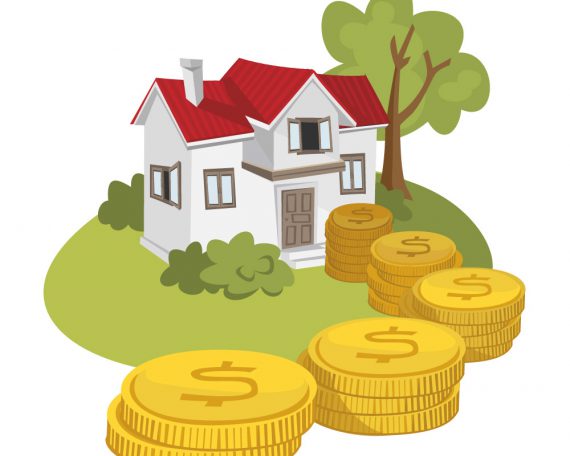
by admin | Consumer Proposal, Credit Counseling, Credit Repair, Debt Management

Counselors act as mentors, guides, advisers, and teachers. Similarly, credit counselors can give you valuable advice and teach you the ways to manage/ lower your debt and improve your financial health. Credit counselors can help you to improve your financial situation even if your debt has reached the tipping point. For many people, financing an automobile or securing a home loan is extremely difficult. Know why? If you answered a poor credit rating then you’re a zillion percent right.
In order to determine whether we’re capable of making timely payments, creditors look at our credit history. A good credit history open many doors for you while bad credit closes most, if not all, of them. Generally, future credit offers depend on how a person uses his or her first credit card. If you make timely payments, your credit rating will improve and you’ll become an attractive borrower.
Generally, people with good credit rating pay lower interest rates than those with average or bad credit. In fact, in some cases, people with good credit may qualify for loans with low interest rates. Moreover, they don’t have to pay annual credit card fees. In short, over the long run, people with good credit can save thousands of dollars. On the other hand, people with bad credit will experience higher interest rates and get fewer future credit offers. The good thing is that people with bad credit can improve their credit situation by taking help from a credit counselor. Who are credit counselors and what do they do? Let’s take a look.
If you’re sinking in a sea of debt then a skilled credit counselor is person you need to approach. Through counseling and education, a credit counselor will help you to get rid of the piles of debt you’ve collected over the years. To help solve your financial problems, a skilled credit counselor will do the following things:
- Advise you about money and debt management
- Assist you in the development of a budget
- Provide relevant educational material
There are many reasons to take help from a credit counselor including:
- Reducing the debt amount
- Lowering credit card debt interest rates
- Consolidating loans into one monthly payment
- Eliminating late fees and additional charges
Taking help from a credit counselor is a sensible thing to do if you want to maintain a good credit score, reduce interest fees, get new credit or simply manage your finances better. Some of the services provided by credit counselors include:
- General budgeting
- Debt free planning
- Bankruptcy counseling
- Student loan counseling
Credit counseling is for you if you want to repair your credit rating, pay off your debt, or simply learn how to manage your finances better. Credit counseling can benefit you regardless of your age or income level so get in touch with a credit counselor right away to lower your debt and improve your financial situation.

by admin | Consumer Proposal, Credit Counseling, Credit Repair, Debt Management

One of the biggest financial decisions you’ll ever make is buying a home. To many Americans, buying a home is a scary prospect. This is largely due to the complexities involved in the mortgage process. Basically, there are two ways for you to buy a home in America: Obtain home financing through a mortgage or purchase the home with cash. As there is no interest or debt involved in the latter, most people prefer to go that way but if you’re short on cash, the only way to buy your dream house is through a mortgage.
In simple terms, a mortgage is a loan to buy a home. Also known as a mortgage loan, a mortgage is the only way people without sufficient funds can buy a home. The mortgage process involves approval from lender based on your credit rating, income and a few other factors. If you to make your mortgage process smooth and avoid future stress, keep a few basic mortgage rules in mind. Basically, you need to avoid the common mortgage mistakes people make. What are the common mortgage mistakes people make and how to avoid them? Let’s take a look.
1. Not determining your fixed costs
Discern your fixed costs prior to obtaining a mortgage loan: this is the first mortgage rule to follow. Be honest in the assortment of your household expenses: count your car payments and your daily Starbucks coffee as a fixed cost if you’re going to be miserable without them.
2. Not getting your paperwork in order
This may surprise you but many people visit loan-officers for pre-approval without the required paperwork. This is a mortgage mistake that you must avoid. Getting the required paperwork in order is the second and probably the most important mortgage rule to follow. When looking to secure a mortgage, the very least you’ll need is your bank statement and your last W2. Additionally, if you’re getting a refinancing loan, you’ll need to add your homeowner’s insurance declarations and mortgage statement to the aforementioned paperwork. Also, you’ll need to provide proof of identity.
3. Not staying within your limits
No offence but you need to stay within your limits when getting a mortgage. Basically, this means that you need to get a mortgage you can afford. The rule of the thumb is that your monthly cost of mortgage should not be more than 30% of your gross monthly income. Also, you’re total monthly debt including the mortgage, credit card debt, student loan, and car payments should not consume more than forty percent of gross monthly income. Speak to a credit counselor to find out how you can secure a mortgage while staying within your limits.
4. Picking the wrong interest rate
A mortgage mistake that costs people in the long-term is picking the wrong interest rate. When looking to secure a mortgage, you can either choose a fixed interest rate which is a bit high but remains stable over the term of the mortgage or a variable interest rate which is lower than the fixed interest rate but fluctuates based on the state of the market. Talk to a credit counselor to make sure you pick an interest rate that is right for you.
5. Not thinking about your mortgage payments
When getting a mortgage, most people do not think about the payments they’ll have to make for it. This is a mortgage mistake that you must avoid. Once you’re approved for the loan and buy the home, you’ll need to start making mortgage payments. The mortgage payments include the principle amount and the interest. Create an amortization table to work out exactly how much you’ll be paying over the course of the mortgage loan once you know your interest rate and the mortgage tenure. This will help you to find out whether you can afford the mortgage in the long term.
To make your mortgage process smooth and avoid future stress, avoid the aforementioned common mortgage mistakes. If you have any further queries related to mortgage financing, you can get in touch with a credit counselor to know everything you want.

by admin | Consumer Proposal, Credit Counseling, Credit Repair, Debt Management

Are you thinking about buying a home? If yes then be prepared to get advice from individuals who last bought a home in the 1980s. Considering what’s just been said, it’s important for you to know that the mortgage landscape has transformed greatly in the past several years. Also, when mortgaging a home, do not believe everything you hear. Instead, do your own research or talk to a credit counselor.
If the mortgage process scares you to death then you need to know that you’re not alone! All aspiring homebuyers go through the same feelings. However, only those who are well informed about the mortgage-buying process prevent their fears from being realized. Want to be one of them? If yes then do your research or talk to a credit counselor to be aware of the mortgage myths making the rounds today. To get you started, following are three most common mortgage myths credit counselors want you to ignore.
A 20 percent down payment is necessary
This is probably the biggest mortgage myth making the rounds today. Therefore, you need to know this—you don’t necessarily need to make a 20 percent down payment. Instead, there are ways for you to secure mortgage financing with minimal down payment provided you qualify as a borrower.
Also, some people will tell you that paying less than twenty percent down payment can be damaging in the long-term. While there are some disadvantages of making less than twenty percent down payment, it is by no means a damaging act.
Pre-qualification guarantees the loan amount
If you’re looking to buy a home and want to get a general idea of your budget then getting pre-qualified is necessary. However, it’s important for you to keep in mind that pre-qualification doesn’t mean that you’re guaranteed the loan amount. In order to find out how much you can logically expect to be approved for, your lender considers your credit report and assets during pre-qualification.
However, the lender doesn’t explore your finances during this stage and therefore isn’t making any commitments to you. Instead, you’re guaranteed the loan amount once you’re pre-approved simply because pre-approval is a much more comprehensive process. Before approving you for a loan amount, the lender will find out everything they want to know about you.
Renting is a more cost effective option
Another common myth is that renting a home is cheaper than buying one. However, the truth of the matter is that, compared to renting a home, mortgaging a home is always cheaper. How? When you rent a house, maintaining the house is the responsibility of the landlord. However, what most people do not know is that the ‘cost’ of maintenance is included in the rent you pay. When you volunteer to maintain the house, the landlord charges you a lower rent. Either way, you’re paying to maintain a house which eventually, at some point of time, you’ll have to vacate. With a mortgaged home, that is not the case. Also, when you rent a home, you’re doing nothing but throwing away your hard-earned money every month. On the other hand, when you mortgage a house, you give yourself the opportunity to build equity.
In addition to the aforementioned myths, there are many others myths related to mortgage. However, the myths mentioned above are the most common myths about mortgage and ones credit counselors want you to ignore.

by admin | Bankruptcy, Consumer Proposal, Credit Counseling, Credit Repair, Debt Management

Do you own a car? If not then you need to get one right away. Start taking control of your future: public transport can be unreliable at the best of times, and there is never a good time to start saving so just do it. Get those lessons booked, pass your test, and buy a car using our car finance service to take control of your future. Whether you’re looking for car financing with bad credit or car financing with good credit, you need to act now. By acting now, you will have little to regret in the future.
In car financing, credit score plays an important. Generally, if you have a bad credit rating, you’ll have to pay a higher interest rate. On the other hand, people with god credit rating need to pay a low interest rate to secure car financing. Nonetheless, as car financing for bad credit is available, a person with a bad credit can secure the car of his or her dreams. What is bad credit? Generally, bad credit refers to a poor credit rating. There are many reasons for a poor credit rating including not enough credit history years, identity theft, and a history of late payments to lenders. The type of interest you’ll up paying for your financed car is determined by your credit rating.
When it comes to car financing, the most significant thing is credit score. Your credit score determines whether you quality for a regular loan or need car financing for bad credit. Several things are a part of the credit score including mortgages, auto loans, student loans, and credit card payments. However, credit score is largely determined by your payment history and the amount owned. You credit score may affect your car financing. Generally, a credit score of more than 700 will ensure that you pay a low interest rate for the car you wish to buy. On the other hand, a credit score of less than 550 may make you eligible for car financing for bad credit.
Generally, a higher interest rate is what a poor credit rating leads to. However, that isn’t always the case: reasonable car finance for bad credit is also available. This means that to secure car financing, a person with a poor credit rating or bad credit doesn’t necessarily need to pay a higher interest rate. There are a few car financiers that allow people with bad credit to finance a car at a low interest rate. You can find out more about this by getting in touch with a certified credit counselor. The advice you get from the counselor will help you to secure car financing easily and at a low interest rate.

by admin | Credit Counseling, Credit Repair, Debt Management

When should you refinance your home? The rule of the thumb is that you should get refinancing only if your new interest rate is two percent less than your current one. However, deciding whether to go for refinance or not isn’t as simple as that. You need to look at several other things. This includes your financial situation and what you want to get out of refinance. Here, we’re going to discuss the things that make refinance mortgage a sensible decision but before we do that, let’s take a look at the how refinance mortgage works.
How refinance mortgage works
To make a viable decision, knowing how refinance mortgage works is important. Paying off the mortgage you originally got and replacing it with a new one is what refinance loan refers to. The refinance loan may have new interest rate and terms. However, the property remains the same. Obtaining refinance loan is easier than obtaining a regular mortgage because you already own the property. Additionally, refinancing will become easier if you owned the property for a considerable period of time and have significant equity in it. Now that you know how refinancing works, let’s take a look at when you should get a refinance loan.
When should you refinance your home?
Many people find it difficult to determine when they should get refinancing. If you’re such person then you don’t need to sweat because we have all the answers for you. First and foremost, before getting refinancing, you need to consider whether such a move helps you to lower your interest rate and monthly mortgage payments. In case it doesn’t, getting home refinance may not be the best option. On the other hand, if home refinance involves reduced interest rates, you could potentially build up equity in the home faster by getting a shorter-term mortgage loan.
Lowering the interest rate is one of the most common reasons to get home refinance. You should consider such home financing if you’re able to get 2% to 3% lower interest rate than what you’re currently paying. However, you need to keep in mind that this sort of home financing involves paying closing costs and possible extension of loan terms.
Compared to what you’re currently paying each month, you could potentially be paying more with refinancing so doing the math beforehand is important. However, by extending your loan terms, you can use this form of home financing to lower your monthly mortgage. This makes home refinance an affordable option. On the other hand, you can build equity faster by shortening your loan terms. By choosing this option, you can pay off your mortgage sooner and with less interest. Finally, you can use this form of home financing to change your loan type. This means that you can change your loan type from adjustable-rate mortgages (ARMs) to fixed rate mortgages (FRMs) and vice versa.
There you have it—how and when to refinance. Using the aforementioned information, you can determine whether home refinancing is a viable option for you.

by admin | Bankruptcy, Consumer Proposal, Credit Counseling, Credit Repair, Debt Management

Want to meet your financial needs while keeping your debt to a minimum? If yes then short-term loans are a good way to achieve your objective. Short-term loans are something even credit counselors recommend. Why? Let’s take a look.
People utilize the aforementioned loans for a variety of reasons. The most obvious reason for anyone to obtain a short-term loan is minimizing the time they live under debt. Apart from forcing you to live under debt for most of your life, conventional or long-term loans make you pay back an amount which is significantly higher than the original loan amount. This is due to the interest involved in the loan: the longer you owe money to the lender, the more interest is added to your balance which of course means paying back a higher amount.
The best way to counter the aforementioned problem is a short-term loan. By allowing you to pay back everything quicker, a short-term loan minimizes the total time and amount of your debt including less accrued interest. You can save money in the long term even if the interest rate of the short-term loan is considerably higher than what you’d get with a conventional or long-term loan. There are a number of reasons to opt for a short-term loan. Following are some of those reasons.
Get money fast
Quick access to the money you need is what a short-term loan provides you. This is probably the biggest benefit of this type of loan. If you are in dire need of money and want to avoid a lengthy loan approval process then opting for a short-term loan is the best thing for you to do. By providing the money you need within a shorter time span than conventional or long-term loans, short-term loans allow you to get money fast. In fact, with some short-term loans, you can get access to cash within a few hours or the same day.
No collateral
Collateral is required to secure a long-term loan. Usually, borrowers use their home as collateral to secure the loan. Unlike long-term loans, short-term loans do not require borrowers to provide collateral against the loan. Though they are legally binding and must be repaid, the aforementioned loans do not cause a loss of a home or other asset used as collateral when there is a default in their repayment. In short, short-term loans allow you to get the money you need without risking any of your belongings.
Ability to borrow with a poor credit score
The majority of the conventional or long-term loans won’t be available to you if you have a poor credit score. Even if you qualify for conventional or long-term loan with a poor credit score, the terms of the loan are likely to dissuade you. Fortunately, this doesn’t happen with a short-term loan. Even if you have a poor credit score, you can secure a short-term loan easily without any dissuading terms.
Avoid long-term stress
When choosing a long-term loan, many people tend to ignore the long-term effects of the loan. Long-term loans force to you to commit to something for a long period of time. Usually, longer duration loans intimidate borrowers and cause stress in them. Your financial standing in the distant future is something no one can accurately estimate. Also, saying for certain what the economy will look like ten or twenty years from now is not possible. Regardless of what your financial situation is and what the economy looks like, you’ll still be responsible for payments ten or twenty years from now if you obtain a long-term loan. A short-term loan is the best way to obtain the money you need if you want to avoid long-term problems and stress.
Depending on where you obtain it from, a short-term loan may or may not result in all of the aforementioned benefits. If you want to know more about short-term loans, contact a credit counselor today at gtacredit.com















